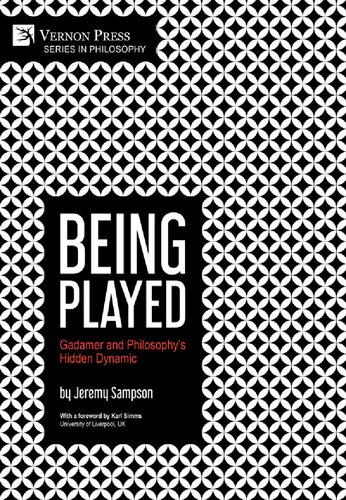

Most ebook files are in PDF format, so you can easily read them using various software such as Foxit Reader or directly on the Google Chrome browser.
Some ebook files are released by publishers in other formats such as .awz, .mobi, .epub, .fb2, etc. You may need to install specific software to read these formats on mobile/PC, such as Calibre.
Please read the tutorial at this link: https://ebookbell.com/faq
We offer FREE conversion to the popular formats you request; however, this may take some time. Therefore, right after payment, please email us, and we will try to provide the service as quickly as possible.
For some exceptional file formats or broken links (if any), please refrain from opening any disputes. Instead, email us first, and we will try to assist within a maximum of 6 hours.
EbookBell Team

4.1
10 reviewsAre we being played? Is our understanding of the traditionally fixed and static concepts of philosophy based on an oversimplification? This book explores some of the theories of the self since Descartes, together with the rationalism and the empiricism that sustain these ideas, and draws some startling conclusions using Gadamer’s philosophical study of play as its starting point. Gadamer’s ludic theory, Sampson argues, reveals a dynamic of play that exists at the deepest level of philosophy. It is this dynamic that could provide a solution in relation to the Gadamer/Habermas hermeneutics debate and the Gadamer/Derrida relativism debate, together with a theory of totality.
Sampson shows how ludic theory can be a game-changer in understanding the relationship between philosophy and literature, exploring the dynamic between the fictive and non-fictive worlds. These worlds are characterized simultaneously by sameness (univocity of Being) and difference (equivocity of Being). The book questions Heidegger’s idea that the univocity of Being is universal, instead maintaining that the relationship between the univocity of Being and equivocity of Being is real, and that ontological mediation is required to present them as a unified whole. Using the works of Shakespeare, Beckett and Wilde, Sampson contends that such a mediation, termed ‘the ludicity of Being’, takes place between literature and its audience. This literary example has profound implications not only for literature and its attendant theories but also for philosophy — in particular, ontology and hermeneutics.
This book will be of particular interest to scholars of philosophy and literature, for it seeks to develop our understanding of ontology and hermeneutics. It should also engage the general reader who wishes to understand literature and philosophy with a genuinely new set of perspectives.